
Salience: The word "tahu" appears in the ninth paragraph, line (7) of the Target Text.
"The leg bone's connected to the . . . hip bone." Assalamualaikum = Hello, Greetings.

Salience: The word "tahu" appears in the ninth paragraph, line (7) of the Target Text.


Usage:
With Malaysia’s 50th Merdeka celebration just around the corner, our nostalgic journey down memory lane ends with a look at the vehicles that once moved our bodies and our hearts. AllMalaysia.ComSalience: The word "Merdeka" appears once in the Target Text, in the last paragraph: Selamat menyambut Hari Kemerdekaan Malaysia ke-50!
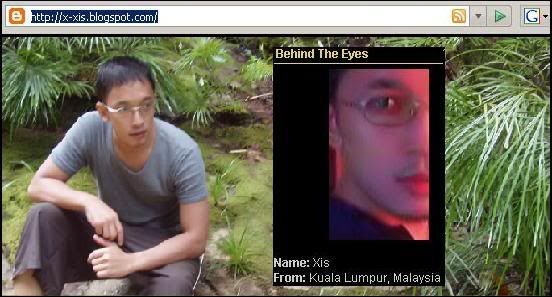
"Tahun" means "year," says Xis, of Kuala Lumpur, Malaysia, whose blog says "Bila Pena Menari" (Discovering Peace and Heaven).
Tahun Melawat Malaysia (TMM) 2007:
PHNOM PENH, 30 April (Bernama) -- Rombongan yang diketuai Timbalan Menteri Pelancongan Datuk Donald Lim Siang Chai tiba di sini bagi melaksanakan misi promosi susulan Tahun Melawat Malaysia (TMM) 2007. Bernama.Com
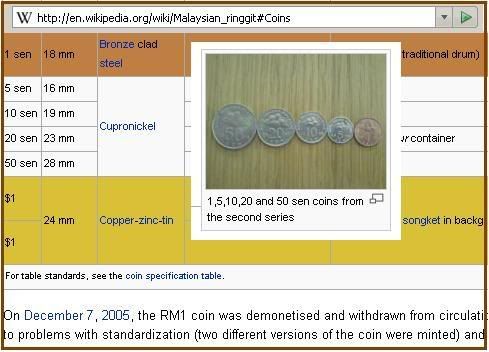
It's a cognate.
Usage: In the Fifth Paragraph of the Target Text, we find the sentence:
Dua kali saya mudik ke seberang sungai, ke perkampungan Melayu,The above usage reveals something about the money counting system in Malaysia. Whereas in English we would use the word "eighty," the Malay language seems, at first obvervation, to use the phrase "thirty plus fifty" instead of the word "eighty." But this may simply be a misunderstanding of the text based on a near-total unfamiliarity with the Malay language.
bayaran yang dikenakan penambangnya juga masih sama, 30 sen dan 50 sen bagi menyeberang ke tempat yang lebih jauh.
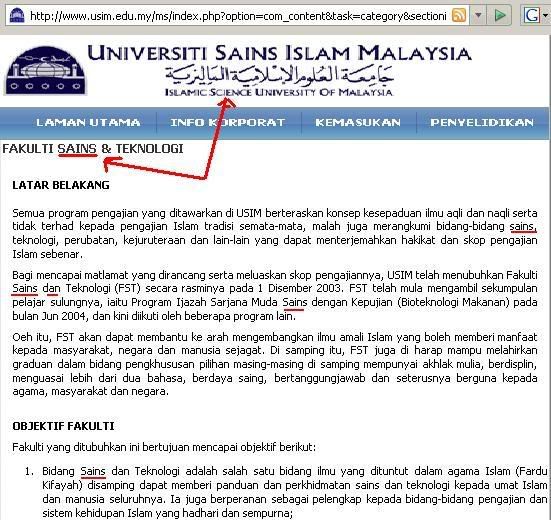
Dan means "and" in English.
Salience: The word "dan" appears four times in the Target Text.
Usage: Observe that in the graphic above from the Universiti Sains Islam Malaysia, the name of the Faculty of Science and Technology, when stated in Malay, is "Fakulti Sains dan Technology." The word "dan" serves approximately the same linguistic purpose in Malay that the word "and" serves in English.

Sains in Malay means "science" in English.
For example, the first objective of the Faculty of Science in Technology at the Islamic Science University of Malaysia (Universiti Sains Islam Malaysia) is:
Bidang Sains dan Teknologi adalah salah satu bidang ilmu yang dituntut dalam agama Islam (Fardu Kifayah) disamping dapat memberi panduan dan perkhidmatan sains dan teknologi kepada umat Islam dan manusia seluruhnya. Ia juga berperanan sebagai pelengkap kepada bidang-bidang pengajian dan sistem kehidupan Islam yang hadhari dan sempurna. USIM
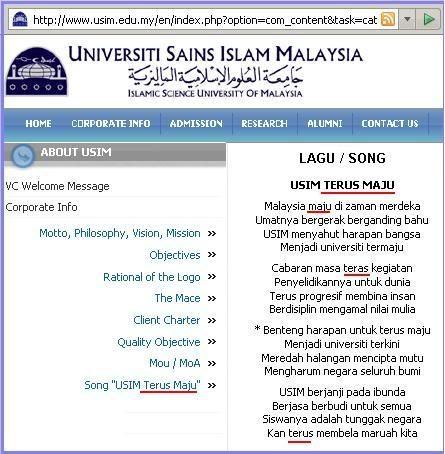
Lagu means "song" or "hymn."
Usage: The school "lagu" or "song of the Islamic Science University of Malaysia (Universiti Sains Islam Malaysia or "USIM") is entitled, "USIM Terus Maju." The University's website is published in H. Melayu (Malay), Arabic(?) and English.

The school song of the Islamic Science University of Malaysia (USIM) (Universiti Sains Islam Malaysia) is entitled "Usim Terus Maju."
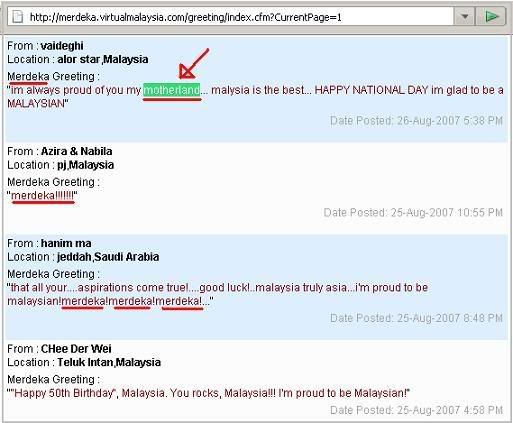
"I'm always proud of you my motherland! Malysia is the best!

Usage: There is a tour bus company in Kajang, Selangor Darul Ehsan called "Terus Maju."
The phrase "terus maju" also appears in this discussion of national sovereignty and the World Trade Organization (WTO):Hari kedua, aksi demonstrasi semakin solid dalam menolak WTO dengan slogan " Fix it or nixt it " para demonstran terus maju dalam gempuran pentungan dan gas air mata polisi yang berusaha membubarkan mereka, walaupun 500 orang ditahan polisi namun demonstrasi tidak berhenti. March to Build a Better and Prosperous Asia.
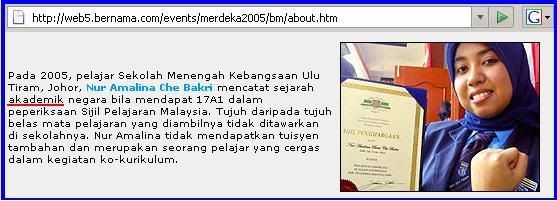
"Akademik" is the Malay cognate for the English "academic."
I do not know if there is a rule that distinguishes the Malay words that use a "k" for this phoneme and those that use a "c" for this phoneme.
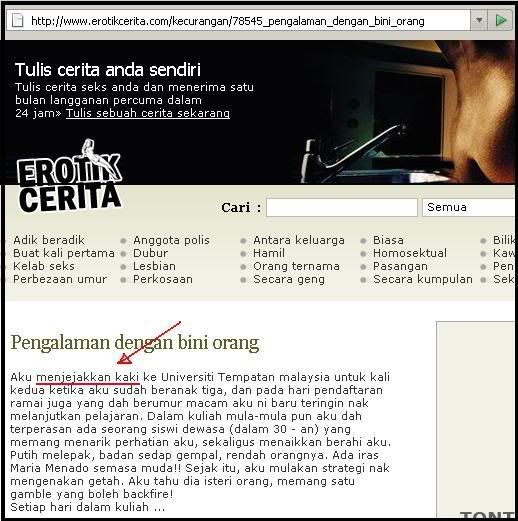
The word "menjejakkan" is almost always followed in Google hits by the phrase "kaki ke," whatever that means. For example,
“Kesengsaraan dan keperitan hidup adalah motivasi dan dorongan untuk membentuk satu matlamat menjadi pelajar Penan pertama menjejakkan kaki ke universiti. Muhtar Suhaili As-SarawakiHere is another example:
Pada Mei 2004 mahasiswa Universiti Teknologi Mara Muhammad Muqharabbin Mokhtaruddin dan Ahmad Reduan Rozali, kedua-duanya 22 tahun, menjadi pelajar universiti dari Asia Tenggara yang pertama berjaya menjejakkan kaki ke puncak Gunung Everest. Mereka merupakan kumpulan rakyat Malaysia kedua yang menjejakkan kaki ke puncak tertinggi dunia tersebut selepas kejayaan N. Mohandas dan M. Magendran pada Mei 1997. Bernama.com/events

A cognate, the only differences are that he "c" phonym is spelled with "K" and the final syllable "ee" sound is spelled with "i" in Malay.
Usage: See this LINK.

Salience:The word "filem" does not appear at all in the Target Text, but appears frequently at other websites and blogs, in association with the word "pengambarran," a word that appears twice in the Target Text.
At the CRI Online wesbite, for example, we find the title, "Penggambaran Filem Rasmi Sukan Olimpik Beijing:"
Filem rasmi petama sukan Olimpik diterbitkan pada tahun 1912 bagi Sukan Stockholm di Swiden. Selepas itu, penggambaran filem telah menjadi satu tugas dan mesti ditugaskan oleh setiap jawatankuasa penganjur Sukan Olimpik. Filem rasmi Sukan Olimpik biasanya akan menggambarkan pertandingan sukan Olimpik atau cerita mengenai sukan Olimpik dan merupakan catatan sejarah yang penting. Malay.CRI.CNThe word filem is a cognate with the English word "film" and appears in in Malay blogs and websites discussions the making and publication of documentaries, films and other television and movie programming.
Ketika penggambaran hendak disambung, Mokhtar pula membawa cerita bahawa Zulkifly cuba merosakkan Mazni. Sekali lagi Pak Halim mengamuk dan kali ini langsung tidak membenarkan Mazni berlakon. Manakala para krew filem pula diserang oleh Pak Mokhtar dan rakan-rakannya kerana mengambil gambar di kawasan kampung itu. Kerja filem terpaksa dihentikan dan pengarah mengambil keputusan supaya rombongan itu balik sahaja ke Kuala Lumpur. Bagaimanapun, kedatangan Cikgu Mahazan telah mengubah keputusan itu. SultanmuzaffarHere is a second example of the usage:
Irwin, kelahiran Melbourne memulakan siri popular itu pada 1992, malah pernah membintangi beberapa filem selain membantu pembangunan taman hidupan liar Zoo Australia yang diasaskan ibu bapanya, Bob dan Lyn Irwin. Jabatan Perkhidmatan Haiwan Nigeri Park, Malaysia
However, the word "filem" has never been used at Kifli Bujang's blog, which might mean that it is a word used with respect to movies and documentaries, but not with respect to news programming.
The word "filem" appears in the name of the website Filem Malaysia, and in the description:
Filem Cereka:
Senarai lengkap filem cereka disusun mengikut abjad dan tahun tayangan. Jumlah keseluruhan filem cereka yang disenaraikan ialah sebanyak 868 buah judul filem. Filem Malaysia,
The word "filem" also appears in the name of the website "Filem Negara Malaysia," where a graphic depiction of movie film makes the purpose of the website evident.
If the word "filem" applies only to movies and not to television, and/or not to television news, then that might explain why the word never appears at Kifli Bujang's blog, since he participates in news programming for television.

Salience: The word "penggambaran" appears only once in the Target Text, in line five of Paragraph One, introducing the purpose of the essay. In this instance, word "penggambaran" appears directly before the name of a television and radio corporation, Selamat Pagi Malaysia (RTM).
Even at Kifli's own blog, the word Pengambarran appears only once in a search of his essays.
At the Sultanmuzafflar blog, the word "penggambaran" appears right before the word "filem" (which is a cognate with the English word "film").
Penggambaran filem dimulakan dengan Mazni dipasangkan dengan Zulkifly Iskandar, pelakon dari kota. Ketika penggambaran berlangsung, Pak Halim balik dan mengamuk apabila melihat anaknya berlakon. Alang memujuk Pak Halim sehinggalah Pak Halim faham dan bersetuju Mazni berlakon. SultanmuzaffarIn the same paragraph, the word "penggambaran" also appears immediately before the word "berlangsung."
In an article entitled, "Pemburu buaya tewas ditusuk sengat ikan pari" at the website Jabatan Perkhidmatam Haiwan Negeri Perak, Malaysia, the word "penggambaran" appears five times, immediately before the phrases "siri televisyen," "menarik tubuhnya ke kapal penyelidikannya, Croc One," "penggambaran dokumentari terbaru, Ocean’s Deadlist," "Bindi Sue," and "dokumentari di Antartika."
We theorize for the moment that the word "penggambaran" may mean "publish," as in "publish on/at Selamat Pagi Malaysia."
Penggabaran could also mean "directed," since the word so often appears before the word "filem." However, there is a Malay cognate for the word "direction" which is "Direktorium," which would seem to mean indicate that "penggambaran" may not mean " to direct."
Mengenai pembentukan Direktorium untuk pengukur dan penggambaranIn the same document from which the above paragraph was exegised, the word "penggambaran" appears sixteen times, and in every case appears directly before the word "peta."
peta", sebagai badan yang bertugas melaksanakan koordinasi. Bakosurtanal.go.id
In another document, Pelesenan dan Penguatkuasaan , in which the word "penggambaran" appears seven times, the word "penggambaran" is followed by the word "peta" in every instance.
However, at the Lealaurielle blog, the word "penggambaran" is followed by the English-language word "movie" in two instances, as well as by the words "poster" and "bermula" in other instances.
In the context of a syllabus at UPI university, the word "penggambaran" is followed immediately by the word "perspektif" in several instances.
At the Layarperak.com website, the word penggambaran appears rpa
Consider the following quote, first in Maylay and then translated into English:
Prosedur kajiannya, sebagaimana penelitian kualitatif yang lain, pada umumnya meliputi daur hubungan (1) penggambaran fokus, (2) pengumpulan data, (3) analisis data. Sedangkan landasan teori yang digunakan penelitian kualitatiftersebut dengan menggunakanThe first noun/adjective combination in the Malay version combines the word "fokus," (a cognate with the English word "focus") and the word "penggambaram." In the English version, the word "depiction" is modified by the word "focus." And so, lacking a dictionary that includes this word, I have to hypothesize that the word "penggambaran" is the functional equivalent of the word "depiction." But I imagine that it could also be related to the concepts of "representation" and "publication," all of which involve grasping an abstraction, interpreting it, and then communicating it to an audience.
pendekatan phenomenologi.Etnomethodology emphasizes mutual
communication, while ethnography texts emphasizes discussion discussion context. The study procedure, like other qualitative research generally covers the relationship cycle of focus depiction, data collecting, and data analysis. While the theoretical based used in the qualitative research is the phenomenology approach.

Konsultasi means "consultation." It would appear that some cognate words that end in "ion" in English may end in "asi" in Malay.
It would also appear that words that begin with "C" in English, like "consultation" and "category," may begin with "K" in Malay in some cases, as in "konsultasi" and "kategori."
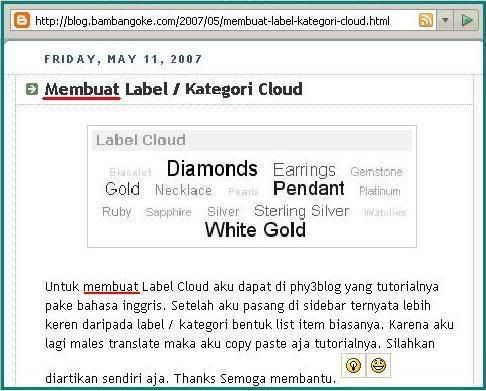
Membuat means "make."
Salience: The word "membuat" appears in the fifth line of Paragraph One of the Kifli Text. It also appears in the fifth line of Paragraph Nine.
In discussions of the Internet, websites and blogs, the word "membuat" is intimately related to the words "kategori" (category) and the English words and phrases "label" and "tag cloud." The word "membuat" appears several times in the graphic below:

Below at the HermanoSaksono blog we find a peculiar usage of the word "membuat" in the context of a discussion of pizza making and the pizza industry.
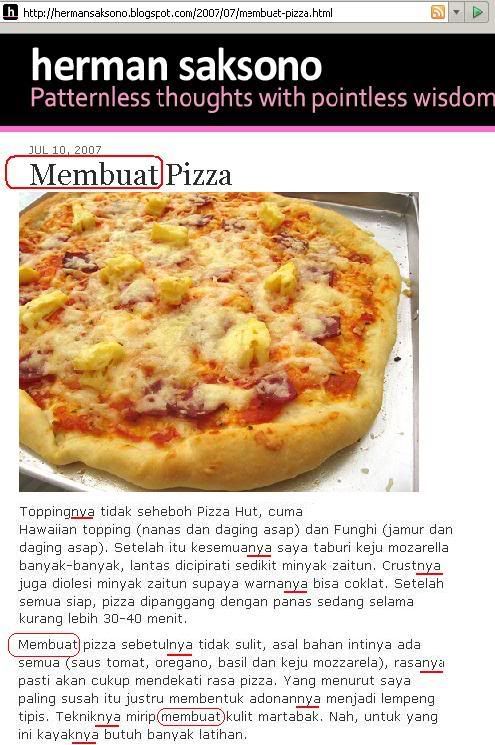
The word "membuat" also appears in the title and repeatedly in the text of a blog about birthday cake making, leading me to believe that the word "membuat" may mean "manufacture," and therefore in intimately related to the words "instructions and "recipe:"
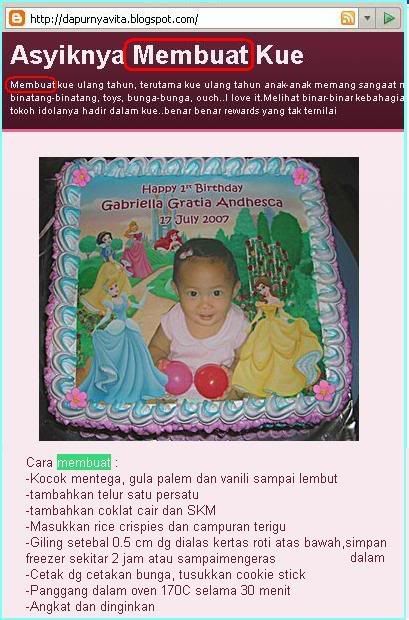
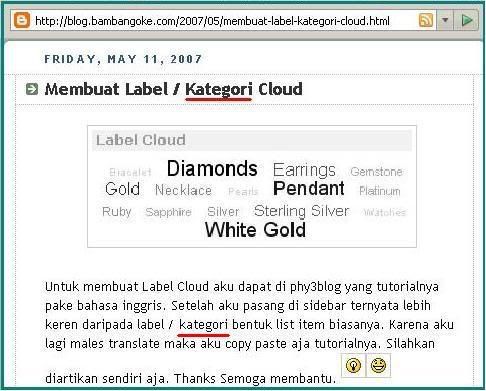
In internet parlance, the word "kategori" is intimately associated with the word "membuat." (See graphic above.)

Usage: BalitaCerdas.Com uses the word "bekerja" thirteen times in one article entitled, "Ibu Bekerja & Dampaknya pada Perkembangan Anak."
At Iklan.orangmedan.com, we find the phrase, "Dicari 19 Supervisor cukup bekerja via internet." This leads us to wonder whether "bekerja" means "work," as in "work via the Internet."
At the website of the Royal Embassy of Saudi Arabia in Jakarta, we find the phrase "Visa masuk untuk tujuan bekerja dan bermukim." In this discussion of visas, the word "bekerja" appears sixteen times, in virtually every paragraph of what appear to be job descriptions, including "profesi."
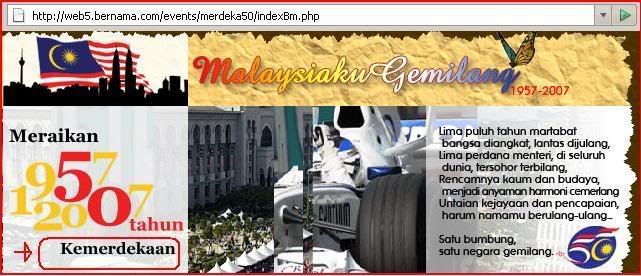
Kemerdekaan: (++) means "freedom," "liberty," "liberties."
Salience: The word "kemerdekaan" appears once in the Target Text, in the first and only line of the Eleventh Paragraph.
Web5Bernama.Com says:
KUALA LUMPUR, 22 Ogos (Bernama) -- Boleh dikatakan setiap tahun menjelang tarikh kemerdekaan kerajaan terpaksa merayu kepada orang ramai, khasnya golongan muda, supaya menzahirkan patriotisme dengan mengibarkan bendera kebangsaan.
Sedih sekali, rayuan kerajaan ini seringkali tidak dihiraukan dan setiap tahun menjelang 31 Ogos tidak ramai yang menunjukkan rasa sayang mereka kepada negara. Rayuan untuk mengibarkan Jalur Gemilang, di premis pejabat dan kediaman, jelas menunjukkan sikap `tidak apa' masyarakat.
Adakah mengibarkan Jalur Gemilang sesuatu yang begitu membebankan rakyat Malaysia? Mengapa pula perlu mengeluarkan rayuan demi rayuan kepada rakyat negara ini supaya ...
Salience: The word "hari" appears twice in the Target Text: once in paragraph (1) line (5) and again in paragraph (11), line (1).
Selamat tengah hari (=Good afternoon - from noon to 2p.m. or so)
In a synopsis of the "The Fatal Lover: Mata Hari and the Myth of Women in Espionage" (Paperback), Amazon.Com says "
More than 70 years after her death, Mata Hari is still a household name throughout the Western world. This is a biography of the Dutch hat-maker's daughter who was executed for espionage after a secret trial during the darkest days of World War I. It examines the myths and fantasies that have grown up around the woman portrayed on screen by such talents as Marlene Dietrich and Greta Garbo; and it asks questions about the reality of women's role in the exclusive and hidden world of espionage and the way in which the life of Margaretha Zelle McLeod has been mythologized into that of "Mata Hari" = Malay for "rising sun". The book offers the general reader an introduction to the world of espionage, together with insights into the nature of treachery, patriotic hysteria and the perpetuation of the idea of the seductive and dangerous temptress. The author also wrote "Amazons and Military Maidens".
Salience: The word "menyambut" appears twice in the Target Text, once in second line of the sixth paragraph; and once in the second line of the eleventh paragraph, which is the last paragraph.
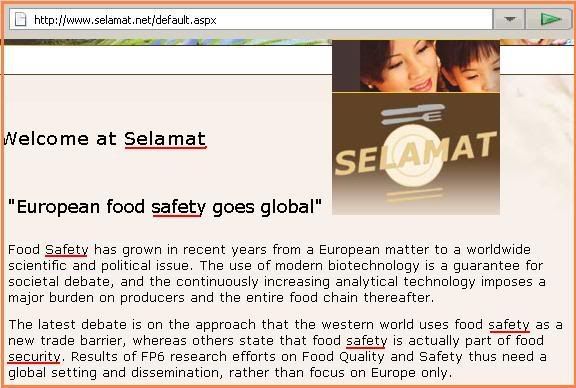
menyambut - (++) to greet/to welcome/welcome/do with/greet/hail/receive
Selamat - safe,e.g. "SELAMAT, meaning safety in the Malay language, aims at creating a network for international co-operation on food safety issues between Europe and Asia." Selamat.Net
Selamat Jalan Tour Malaysia
So:
Selamat menyambut Hari Kemerdekaan Malaysia ke-50!
Becomes:
Safe greet day freedom Malaysia to 50!
Note that Malaysian independence (from Britain) was gained on August 31, 1957. So I think a less literal translation might be something like:
"Welcome the 50th anniversary of Malaysia's freedom!"
Hari Kemerdekaan Malaysia ke-50
Hari Kemerdekaan Malaysia ke-50: Pengisytiharan Kemerdekaan Tanah Melayu
Here are some odd links, referencing the 50th anniversary of Malaysia's independence from Great Britain.
Cuban artists salute Malaysian independence.
Malaysia at 50: Independence has not resolved ethnic issues.


Salience: The word "negeri" appears three times in the Target Text.
See also, List of Malaysian States.

Mat vive em um kampung - vilarejo típico da Malásia - na maior região de mineração do país. Entre banhos de rio, pescarias, estudos do Alcorão e brincadeiras com seus irmãos e amigos, ele vai construindo uma visão de mundo toda particular - a de um menino de aldeia. Submarino.comSalience: The word "kampung" appears in the Target Text once, in the sixth line of the ninth paragraph, and a variation also occurs once: "perkampungan," in the first line of the fifth paragraph.
Disambiguation:Since the word "bandaraya" means city, it is believed that the word "kampung" may not include population centers as large as cities.
Also, see Zimbel's Treatise, Chapter I.
See also, Syiron orang kampung
Yang jelas, sesuatu perlu dilakukan bagi sebuah negeri berstatus bandaraya ini untuk terus maju.
ke- mind?
per- adjective?
-an legal entity?
-aya large?
bagi - for/give
bandaraya - city (root bandar)
berstatus - have status ++
dilakukan - Done +
ini -this
jelas -clear/well-defined/obvious
maju - developed
negeri - country/state
perlu - necessary/must
sebuah - one (++)
sesuatu - something/one or another/one/anything/a certain/an unspecified/alusi (++)
terus - straight/direct
untuk - for/with a view to/in order to
yang - who/which/that
Given the above (note that some of it is copied from my last entry):
Yang jelas, sesuatu perlu dilakukan bagi sebuah negeri berstatus bandaraya ini untuk terus maju.
gives:
That obvious, something must done give one country have status city this in order to direct developed.
Sarawak is situated on the island of Borneo, and is one of the two states that make up East Malaysia. Sarawak and Sabah are separated from West Malaysia (Peninsula Malaysia) by the South China Sea about 600 km away. With an area of 124,449.51 square km, Sarawak is the largest state in Malaysia, making up some 37.5 per cent of the country's total area.The Welcome page at the Sarawak Tourism website says:
The State is bounded on the north and northwest by the South China Sea, the northeast by Sabah and Brunei Darussalam, which forms a double enclave, and the south by Kalimantan, Indonesia. Sarawak can be classified into three terrain groups: the alluvial coastal plain, the mountainous interior and the central undulating belt. Sarawak's highest point is Gunung Murut (2,434 m). Malaysia's longest river, the Batang Rajang, glides through the State. SarawakTourism.Com: Location
Sarawak is home to 28 ethnic groups; each with its own distinct language, culture and lifestyle. The Ibans form the major ethnic group on this land with about 30.1 per cent of the total population for the year 2000 census. The Chinese who generally live in the cities are the second largest group at 26.7 per cent, followed by the Bidayuh, Melanau and other native tribes of Sarawak. The Malays also constitute a large portion (23 per cent) of the population as well, mainly concentrated along the coast.
Sarawakians practise a variety of religions, including Islam, Christianity, Chinese folk religion (a fusion of Buddhism, Taoism, Confucianism and ancestor worship), Bahá'i and animism. Many converts to Christianity among the Dayak people also continue to practice traditional ceremonies, particularly with dual marriage rites and during the important harvest and ancestral festivals such as Gawai Dayak and Gawai Antu. SarawakTourism.Com: Introduction
Kuching is the capital of the East Malaysian State of Sarawak. Kuching is the most populous city in the state of Sarawak (see CIA World Factbook w/map) and the fourth largest city in Malaysia[3].[4] Kuching was elevated to city status on 1 August 1988. ( . . .) Kuching is situated at the banks of the Sarawak River on the North-Western part of the island of Borneo. ( . . .)It was also voted as the healthiest and cleanest city in Malaysia, as well as in the World, which recognised and awarded by both United Nations (UN) and World Health Organisation (WHO) [9] and by the Alliance for Healthy Cities (AFHC) in Suzhou, China.[10] ( . . .)
Kuching offers some of the world's greatest natural flora and fauna. With this, several international film makers have made their ways to Kuching and chosen Kuching as their filming location.Wikipedia: Kuching

Kifli is a Muslim and Asian. Like me, Kifli loves to travel, speaks English and likes to speak Spanish. (See below.)
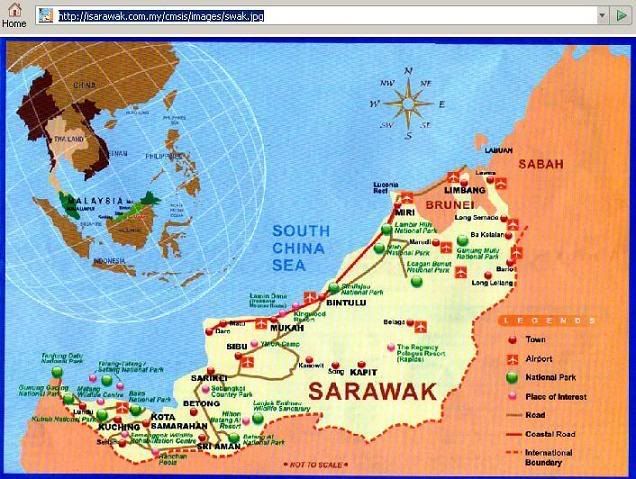
His full first name is "Zulkifli," but everyone calls him "Kifli." Like me, he's 5'5" and has a graduate school education, is heterosexual and would like to have kids someday. (I have three step-children, but would someday like to have a flesh and blood child as well.) Kifli is single, but at least a few women would like to marry him.
His tastes in music include Keroncong, Classical Jazz, Swing Jazz, Smooth Jazz and R&;B, which means he has excellent taste in music!
He says:
Hola, mi nombre es Zulkifli.That’s Spanish for Hello, my name is Zulkifli. Guess most of you know me on the surface. But if you want to know more, read on -- I am a simple man who’s constantly looking for challenges in life. To me, life is beautiful because it’s a gift from ALLAH.I always keep a positive mind and quick at making decisions. However, I can be manipulated if you know how. I dislike being forced into doing things that nothing comes out of it. I’m a homely [I think he means "homebody," not "homely." Honest mistake.] person who will shun parties and crowds. I don’t mind chillouts though.
Being an Aries, I’m loyal to my friends and cheerful in nature. You can see me smiling twenty-four seven, even on days when I’m feeling dead lethargic(hay… I’m ain’t lunatic yah), BUT beware if you step on my toes. I, however, am a forgiving person. I prefer to forget about the bad memoirs and move on with the friendship. I listen to all kinda music except Hard Rock, the Dream Theatre kind. One of my aficiones [Now, I'm pretty sure Kifli speaks Spanish.] includes driving around KL in my “coupe”. Other than that, I’m into out-door activities and loves adventure. The most important factor about me, I’M ALLERGIC TO CHICKEN!!! [I feel for you, 'cause I LOVE chicken!] I’ll get itchy nose for eating that and it will lead to flu then! So, please, if you plan a meet up, The CHICKEN RICE shop is a no no for me.
As a newscaster, I love to keep in touch with world news(sounds boring isn’t it). I’m always serious in my work. I can complete a few jobs in one day! Amazing right? Apart from my main job, I do emceeing for functions like weddings, corporate events and many more. All these tasks, kept me busy all the time. But I still got some time for me though.
On my off days, I will catch up with things that I’ve missed like my hobbies, catch up with friends and relax. So, if you’d like to be acquainted to moi … add me in… a definite yes you’ll be added in my friend’s list, guaranteed! See yah!
The following essay is beautifully written, but I don't know what it says. If you can help me to translate it, I will be much obliged. It starts with the word, "waterfront," so I know it's a topic I'll enjoy:
Kuchingku Kaku!Over the next ten hours, ten days or ten years, I intend to translate this essay to English, because it seems so beautifully written that I'm determined to know what it says. I might translate the words in order, randomly or by chance. But, I won't be satisfied with a summary. I want to understand what each of these words means and why Kifli used these particular words instead of synonymous alternatives that exist in his native language.
"Kuchingku" is part of a greeting (see above). It is also a word sometimes used in poetry. It seems to be an announcement or greeting of some sort, because it often appears as the first word in writings at blogs. Here the word appear again in the first sentence of a blog text, in a discussion of a house cat whose name may be "Nyeng." If so, the word "nama" might mean "name" in Malay, which is the name of the primary language spoken in Malaysia. Actually, it's formally called "Bahasa Malay," and 50.4% of Malaysia is of the "Malay" ethnic group."On top of Malay and English, Kuchingites can usually speak his or her own ethnic dialect/language."
In terms of "salience," the word "Kuchingku" only appears 43 times at Google, which must mean either that it is not a common word in Malay, not much Malay text is available in Google, it is an odd variation of a common word, or it is a common word that is misspelled, which seems unlikely, since Kifly spells it this way and he has at least one graduate degree.
Language learning is about a series of hypothesis, some of which are correct and some of which are not, many of which turn out to be embarrassing, but it's all good.
Word salience effects “Words that occur more often inHere's a usage of the word "kuchingku" that might give us some inkling of its meaning:
printed language are easier to recognize than less frequently occurring words. This effect is known as the word frequency effect”. (Grainger, 1990:228). Studies have shown that participants were quicker to respond to high frequency words than to low frequency words in lexical decision tasks. Probing the syllabic structure of words . . .Kuchingku yang bernama kidie sebenarnya dah selamat kembali ke rahmatullah. (kuching ada roh ke ? ayles, tolong jawabkan, bukankah awak professional tentang life after death) Nama Haiwan PeliharaanHere, the word is used in a discussion of "life after death," and I'm guessing the word means something like, "Greetings in the name of Allah." "All thanks goes to kuchingku."Kuching is a place in Malaysia.
Kuching is the capital of the East Malaysian State of Sarawak. Kuching is the most populous city in the state of Sarawak (see CIA World Factbook w/map) and the fourth largest city in Malaysia[3].[4] Kuching was elevated to city status on 1 August 1988. ( . . .) Kuching is situated at the banks of the Sarawak River on the North-Western part of the island of Borneo. ( . . .) It was also voted as the healthiest and cleanest city in Malaysia, as well as in the World, which recognised and awarded by both United Nations (UN) and World Health Organisation (WHO) [9] and by the Alliance for Healthy Cities (AFHC) in Suzhou, China.[10] ( . . .) Kuching offers some of the world's greatest natural flora and fauna. With this, several international film makers have made their ways to Kuching and chosen Kuching as their filming location.Wikipedia: KuchingAmong other meanings, "Kaku" is the last name of a renowned Asian-American physicist and string theorist.
Waterfront, (Kuching, Sarawak) 18th Ogos , 2007 ("Ogos" obviously means the month of "August" in Malay, because this was posted in August and the word "Ogos appears between the day and they year which, fortunately, are written in numbers here.) -- Kali pertama dan terakhir menjejakkan kaki ke pinggir sungai Sarawak yang berliku-liku ini ialah sekitar 7 tahun lalu. Waktu itu, masa banyak dihabiskan untuk bekerja--membuat penggambaran Selamat Pagi Malaysia ("Selamat Pagi Malaysia" means "Good morning, Malaysia.") (RTM), tapi hari ini saya kembali ke negeri itu lebih untuk merealisasikan impian orang-orang yang belum pernah ke Kuching.People interested in the study of "mearealisasikan" are also interested in the study of Islam and of "perkataan," whatever that means. I knew Kifli was a deep thinker.
The word "sekitar" seems to be somehow related to environmental sciences, since it appears in texts related to environmental sciences. It reminds me of the word "sector." I wonder if it's a cognate?The word "ke" appears before the words "negeri" (a place) and also "Kuching" (another place). I wonder if "ke" means "at" or "to?" The word "ke" appears 13 times in this text, so it's got pretty good salience. It's got to mean something like "from," "with," or "to." It must be a preposition.
Kuching pada saya, tidak banyak berubah, selain lapangan terbangnya yang sudah dinaiktaraf dan beberapa jejantas atau by-pass merentasi bandaraya itu, saya tidak dapat melihat apa-apa mercu tanda baru lain yang boleh mengaitkan bumi kenyalang itu sedang menuju ke arah sebuah negeri maju.
Monumen kucingnya masih di situ, membatu di tengah-tengah bandaraya itu.
Waterfrontnya juga masih menjalankan aktiviti-aktiviti sama, bazar di seberang jalannya juga masih begitu menjual produk-produk kraf yang pernah saya lihat dulu.
Kalau dulu di bazar seberang jalan inilah saya beli kain puah dan kayu pemindangnya, tapi kali ini, saya tidak berminat untuk membeli sebarang jenis perhiasan -- boleh jadi, konsep rumah saya kini tidak lagi sama dengan konsep etnik seperti itu.
Dua kali saya mudik ke seberang sungai, ke perkampungan Melayu, bayaran yang dikenakan penambangnya juga masih sama, 30 sen dan 50 sen bagi menyeberang ke tempat yang lebih jauh.
Suasana kerja-kerja menaiktaraf tempat-tempat awam ketika negara sedang menyambut Tahun Melawat Malasyia 2007, bukan lagi asing, ia sering diperkata di dalam akhbar terutama di tempat-tempat tumpuan pelancong.
Di sini, perkara sama juga saya lihat. Di Muzium Kucing misalnya, walaupun ia hanya melibatkan kerja-kerja pembaikan kecil, namun ia masih mengganggu urusan pelancong yang keluar masuk ke muzium itu.
Menyentuh mengenai urusan pelancong, perkara ini amat perlu saya kemukakan, soal tanda jalan atau penunjuk arah.
Boleh saya katakan, hampir tiada tanda jalan yang jelas bagi menunjuk arah ke sesuatu destinasi. Bagi saya yang pertama kali memandu di Kuching, amat memerlukan penunjuk arah itu -- ketiadaan papan tanda yang jelas ini membuatkan saya berfikir, seolah-olah saya sedang memandu di sebuah kampung yang penduduknya sudah pasti tahu ke mana destinasi mereka. Namun ia cukup tidak adil bagi mereka yang bukan orang tempatan.
Yang jelas, sesuatu perlu dilakukan bagi sebuah negeri berstatus bandaraya ini untuk terus maju.
Selamat menyambut Hari Kemerdekaan Malaysia ke-50!
Here's another Kifli Bujang quote:
Dah mcm reporter habislah I tak boleh cari makan lepas ni.I know I will eventually understand this because I already understand 8% of it: the word "reporter." I know that's relevant to the life and work of Kifli Bujang!
Sarawak (Jawi: سراوق) is one of the two Malaysian states on the island of Borneo. Known as Bumi Kenyalang (‘Land of the Hornbills’), it is situated on the north-west of the island. It is the largest state in Malaysia; the second largest, Sabah, lies to the northeast. Wikipedia: Sarawak
"On top of Malay and English, Kuchingites can usually speak his or her own ethnic dialect/language."
In terms of "salience," the word "Kuchingku" only appears 43 times at Google, which must mean either that it is not a common word in Malay, not much Malay text is available in Google, it is an odd variation of a common word, or it is a common word that is misspelled, which seems unlikely, since Kifly spells it this way and he has at least one graduate degree.

The news organization has a public online Kifli-Language message board, RTM Community.

Bahasa Melayu is the official language of Malaysia and Brunei. Together with Bahasa Indonesia (Indonesian form of Malay), the language is spoken by around 200 million people, making it world's 8th most widely spoken language.The Portuguese word for "Malayu" is "Malaio."
The forms of Malay vary slightly in different countries - but is exactly the same in Malaysia and Singapore. The vocabulary of the language is enriched by influence from Sanskrit (ancient Hindi), Arabic and since 19th century, English. Kuala Lumpur City Guide

Salience: The word "yang" appears in the Kifli Text 14 times. In one instance, it is preceded by the word "destinasi."
The word "yang" appears in discussions of shopping, particularly in discussions of a product's size and appropriateness for its intended user. E.g.
Do you have a larger one? =
Ada yang lebih besar? Wanna Learn Malay Language?

Destinasi = + - Destination
The word "destinasi" frequently appears before the names of geographical locations, as in "Destinasi pelancongan."
The word "destinasi" also appears in the name of a blog about Malaysia, called "My Destinasi."
The word "destinasi" also appears in the text of the My Destinasi blog, followed immediately by the word "yang:"
Kawasan air mineral ini yang lebih dikenali sebagai Air Tarong oleh penduduk setempat merupakan satu destinasi yang agak menarik di sini. Air mineral ini berasal dari mata air yang terdapat jauh ke dalam bumi dan dipercayai berkhasiat dan mempunyai nilai-nilai penyembuhan oleh penduduk setempat.Since the word "destinasi" is a cognate of the word "destination," and since it appears in discussions of location and locations, I hypothesize that the word "destinasi" means "destination" or "destined."
"Destinasi" must also mean "site" or "website," as in "Destinasi Avior Airlines."
Depending on the context, "destinasi-destinasi" may also be a synonym, alternative, or closely related to the phrase "bandara bandara."
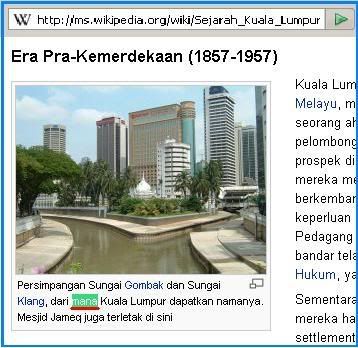
Dr. Zimbel* says "mana" in Malay means "where" in English.
Location: The word "mana" appears in paragraph (9), line (7) of the Kifli Language Target Text.
Salience: This word appears only once in the Kifli Text, and is immediately followed by the word "destinasi."* "Dr. Zimbel" may or may not have a Ph.D. But, he knows a lot of stuff about a lot of things, so I choose to call him "Dr. Zimbel" for the purposes of this Encyclopedia.
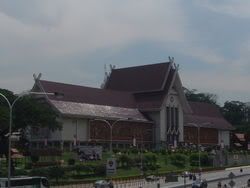
Wikipedia says:
Muzium Negara
Muzium Negara (which is National Museum in Malay) is the Malaysian national museum, which is located outside Perdana Lake Gardens in Kuala Lumpur, Malaysia.
It is a palatial structure built in the style of Minangkabau architecture. Located atop a hill on Jalan Travers, it provides an interesting introduction to the history and culture of Malaysia. Built in the style of a Rumah Gadang, its impressive facade of two large murals depicts scenes of the country's colourful past and rich culture. Wikipedia: Muzium Negara
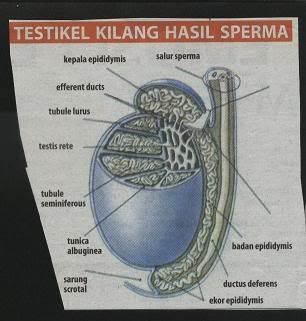
It would appear that Greek and Latin-based words that would end in a "y" in English will end in an "i" in Malay. More relevant to the word "testikel," it would also appear that words that end in "icle" in English, e.g. "testicle," will end in "kel" in Malay.
This would also seem to indicate that Malay often uses a more literal and simple phonetic spelling that, nonetheless, will make sense to English speakers because the phonetic script, in at least some cases, is similar to that of that of English.
It is not known at this time whether the pronunciation actually bares any direct relationship to the spelling.

Kifli Bujang at a news desk of the Berita Bernama News.
Target Text of the Kifli Language: Kuchingku kaku!
In order to give order to our linguistic analytical process and facilitate collaboration as we seek to understand the Target Text, we have divided the Target Text of the Kifli Language into separate lines and paragraphs. Because none of the analytical team members understands the target text, the division is necessarily somewhat arbitrary, but does endeavor to follow these rules:
(a) Where there was a comma in the original text, that comma is preserved is a new line starts after the comma.
(b) Where there was a period in the original text, the period is preserved and a new line starts after the period. (c) Where there was no space for the line to continue until the next period or comma, the line was separated intuitively and only textual analysis will show whether intuition was correct.
Hyperlinks in the text below lead to separate entries in the Encyclopedia, where readers will find a definition, where one is known, as well as links to third-party websites that use the target word and offer clues to its meaning(s) via contextual analysis of those sites.
In the decodification of this Target Text of the Kifli Language, we are inspired by Zulkifli Bujang, whose photograph is above. He has something important to tell us here, and we want to know what it is.
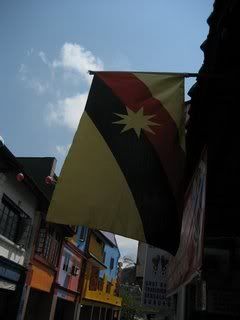
August >> and
3. menjejakkan kaki ke pinggir sungai Sarawak yang berliku-liku ini ialah
4. sekitar 7tahun lalu. Waktu itu, masa banyak dihabiskan untuk
>> 7year
5. bekerja--membuat penggambaran Selamat Pagi Malaysia (RTM), tapi hari
Selamat Pagi Television/Radio > > day
6. ini saya kembali ke negeri itu lebih untuk merealisasikan impian
7. orang-orang yang belum pernah ke Kuching.
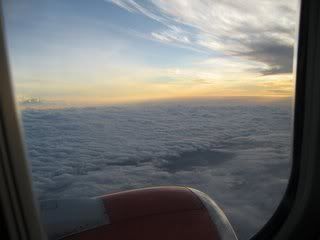
1. Kuching pada saya, tidak banyak berubah, selain lapangan terbangnya
2. yang sudah dinaiktaraf dan beberapa jejantas atau by-pass merentasi bandaraya itu,
who/which/that >> and >>>city
3. saya tidak dapat melihat apa-apa mercu tanda baru lain yang boleh mengaitkan
4. bumi kenyalang itu sedang menuju ke arah sebuah negeri maju.
1. Monumen kucingnya masih di situ, membatu di tengah-tengah bandaraya itu.
city1. Waterfrontnya juga masih menjalankan aktiviti-aktiviti sama,
2. bazar di seberang jalannya juga masih begitu menjual produk-produk kraf
3. yang pernah saya lihat dulu.
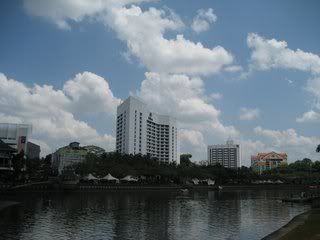
1. Kalau dulu di bazar seberang jalan inilah saya beli kain puah dan
>> and >>
4. sama dengan konsep etnik seperti itu.
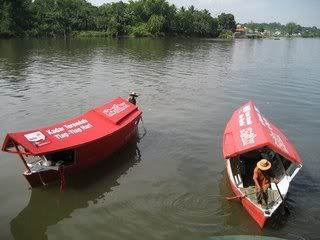
1. Dua kali saya mudik ke seberang sungai, ke perkampungan Melayu,
2. bayaran yang dikenakan penambangnya juga masih sama,
3. 30 sen dan 50 sen bagi menyeberang ke tempat yang lebih jauh.
thirty cents and fifty cents > > who/which/that,
1. Suasana kerja-kerja menaiktaraf tempat-tempat awam ketika negara
2. sedang menyambut Tahun Melawat Malasyia 2007,
3. bukan lagi asing, ia sering diperkata di dalam akhbar terutama
4. di tempat-tempat tumpuan pelancong.
1. Di sini, perkara sama juga saya lihat.
2. Di Muzium Kucing misalnya
museum
3. walaupun ia hanya melibatkan kerja-kerja pembaikan kecil,
4. namun ia masih mengganggu urusan pelancong yang keluar masuk ke muzium itu.
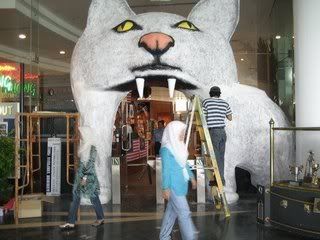
1. Menyentuh mengenai urusan pelancong,
2. perkara ini amat perlu saya kemukakan,
3. soal tanda jalan atau penunjuk arah.
1. Boleh saya katakan, hampir tiada tanda jalan yang jelas
2. bagi menunjuk arah ke sesuatu destinasi.
3. Bagi saya yang pertama kali memandu di Kuching,
4. amat memerlukan penunjuk arah itu --
5. ketiadaan papan tanda yang jelas ini membuatkan saya berfikir,
6. seolah-olah saya sedang memandu di sebuah kampung yang penduduknya
7. sudah pasti tahu ke mana destinasi mereka.
8. Namun ia cukup tidak adil bagi mereka yang bukan orang tempatan.
1. Yang jelas, sesuatu perlu dilakukan bagi sebuah negeri berstatus
2. bandaraya ini untuk terus maju.
1. Selamat menyambut Hari Kemerdekaan Malaysia ke-50!
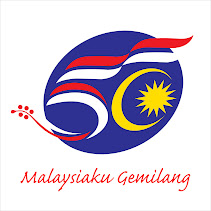
Universiti Penyelidikan Yang Ulung di Malaysia
Inside SarawakTarget Text of the Kifli Language Encyclopedia
Learn the Malay LanguageByki.Com Free Malay (and other language) Acquisition Software
Online Dictionary of Malaysian Greetings
Free.Translated.Net (Free Online Translations)Visit Malaysia 2007 CampaignInteractive Satellite Map of MalaysiaPertubuhan Berita Nasional Malaysia (Bernama.com)
Mykamus Malay/English Dictionary - Free Download